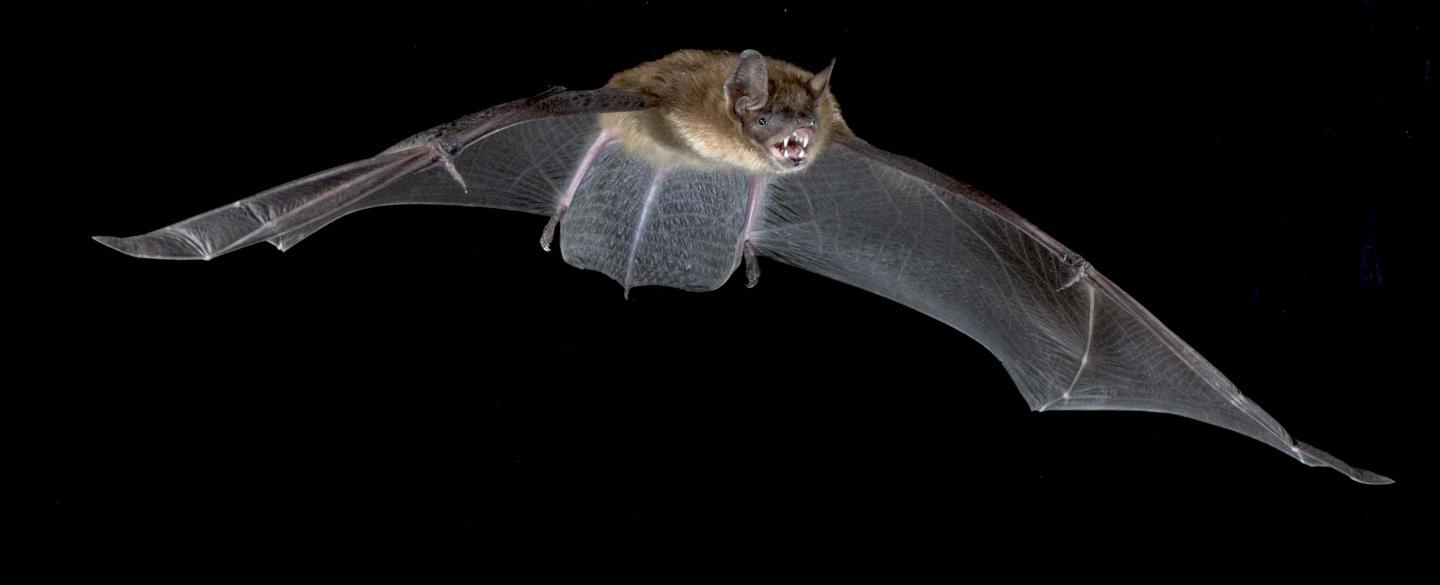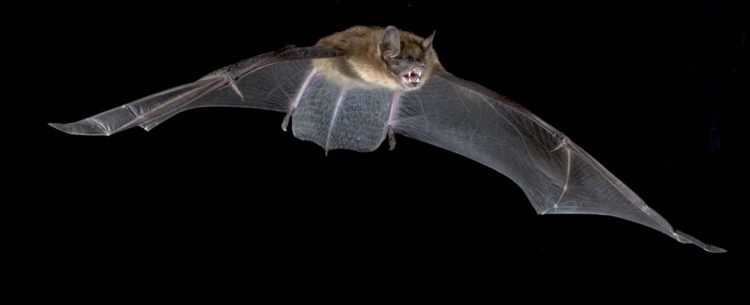
Credit: Brock Fenton
Identifying how groups of animals select where to live is important for understanding social dynamics and for management and conservation. In a recent Journal of Wildlife Management study, researchers examined the movement of a maternity colony of big brown bats as a response to naturally occurring tree loss.
The colony began moving to a new patch of forest approximately seven kilometers away when cumulative loss of trees, over three years, in the old patch reached 18%. Most bats roosted in the new patch by year four, when cumulative loss of roost trees reached 46%.
The authors noted that to maintain high densities of suitable roost trees for bats,
management plans must retain live and dead trees in multiple stages of growth and decay.
“This is the first time that the movement of bats in response to a natural loss of roost trees has been documented. Our work suggests that general patterns for how bats respond to loss of roost trees may exist across bat species and forest types,” said lead author Kristin Bondo, MSc, PhD, of the University of Regina, in Canada.
###
Media Contact
Penny Smith
[email protected]
Related Journal Article
http://dx.





